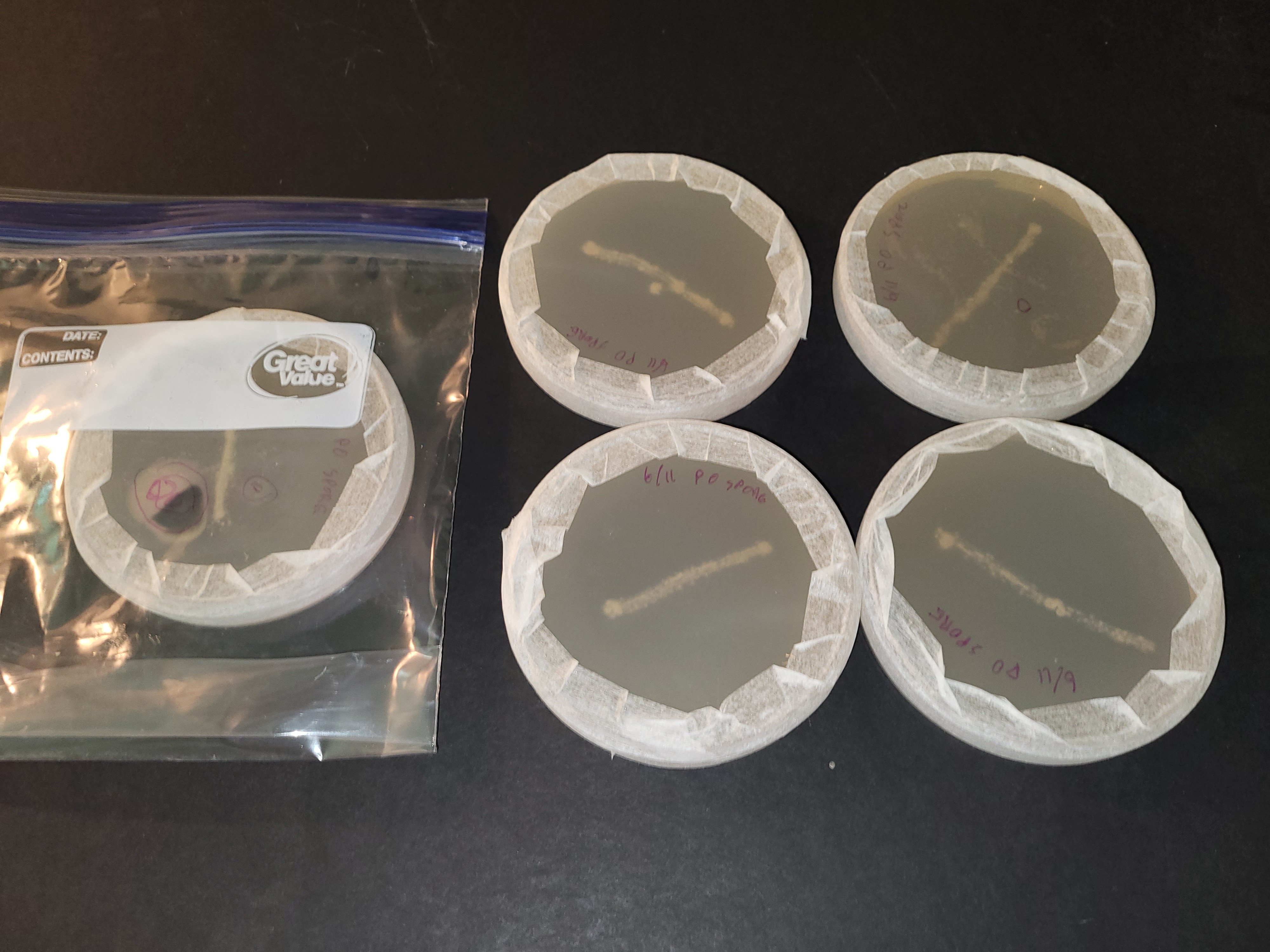this post was submitted on 17 Jun 2023
20 points (100.0% liked)
Mycology
3402 readers
84 users here now
founded 3 years ago
MODERATORS
you are viewing a single comment's thread
view the rest of the comments
view the rest of the comments

Not bad at all! How do you deposit the spores in such a neat line?
I used the tip of a specialized tooth-brush, and I dipped it into water and then swiped-up spores from the sample. I wouldn't recommend it though, because it turns out the brush fibers are too stiff and caught on the agar, pulling the plate around. It's probably better just to stick to swabs and use the same method.
Side thought: a lot of people recommend the z-shape swabbing, but it seems kind-of counterproductive if you're trying to select for the apparent speed and strength of mycelium growth.
Thanks! Interesting to see a line like this :-)
I like preparing a dilutions series and then preparing two or three plates per dilution by adding 1 mL of liquid into the plate. Usually one of the dilutions has a good spore density to get well-separated colonies.
Oh, that's a great idea! I'm clearly new to mycology, so I'm just kind-of experimenting--but you're right, we're talking billions of spores, and only two need to meet in order to form a strain. Hmm...
Yeah! And when they do meet, they form a new anatomical structures called 'clamp connections', so if you have a microscope it is easy to check if the mycelium has already mated.
There is a nice series about breeding and how to isolate single-spore haploid mycelium here: https://www.youtube.com/watch?v=vsJpjQhsDIM
The idea is that if you manage to grow plates from single un-mated mycelium, you can then control their breeding, and this is how you can make new strains and have more control over their genetics. It is a more advanced topic in mycology, but a very interesting one to learn about!
I went and skimmed through that whole series, and then I found another video where he discusses the problems of going spore to grain, and even assuming I did get some viable mycelium on these plates, I'm thinking it's going to be nearly impossible to select them properly. I suppose I could just rinse and repeat into new plates, but then I won't know if it's a viable diploid/dikaryon or not.
Yet, the video I initially watched https://www.youtube.com/watch?v=tYK0hLeanVc demonstrated just grabbing some spores with a sterile blade and wiping that across agar. So maybe it is a reasonable method? One thing's for sure, there's a lot of colonies along the inoculation line, and it's already probably too late to start isolating like you would with the method demonstrated by Fresh From the Farm.